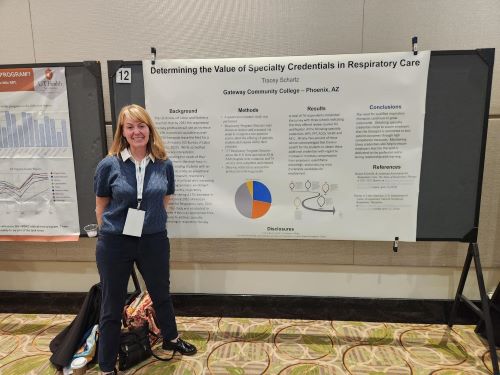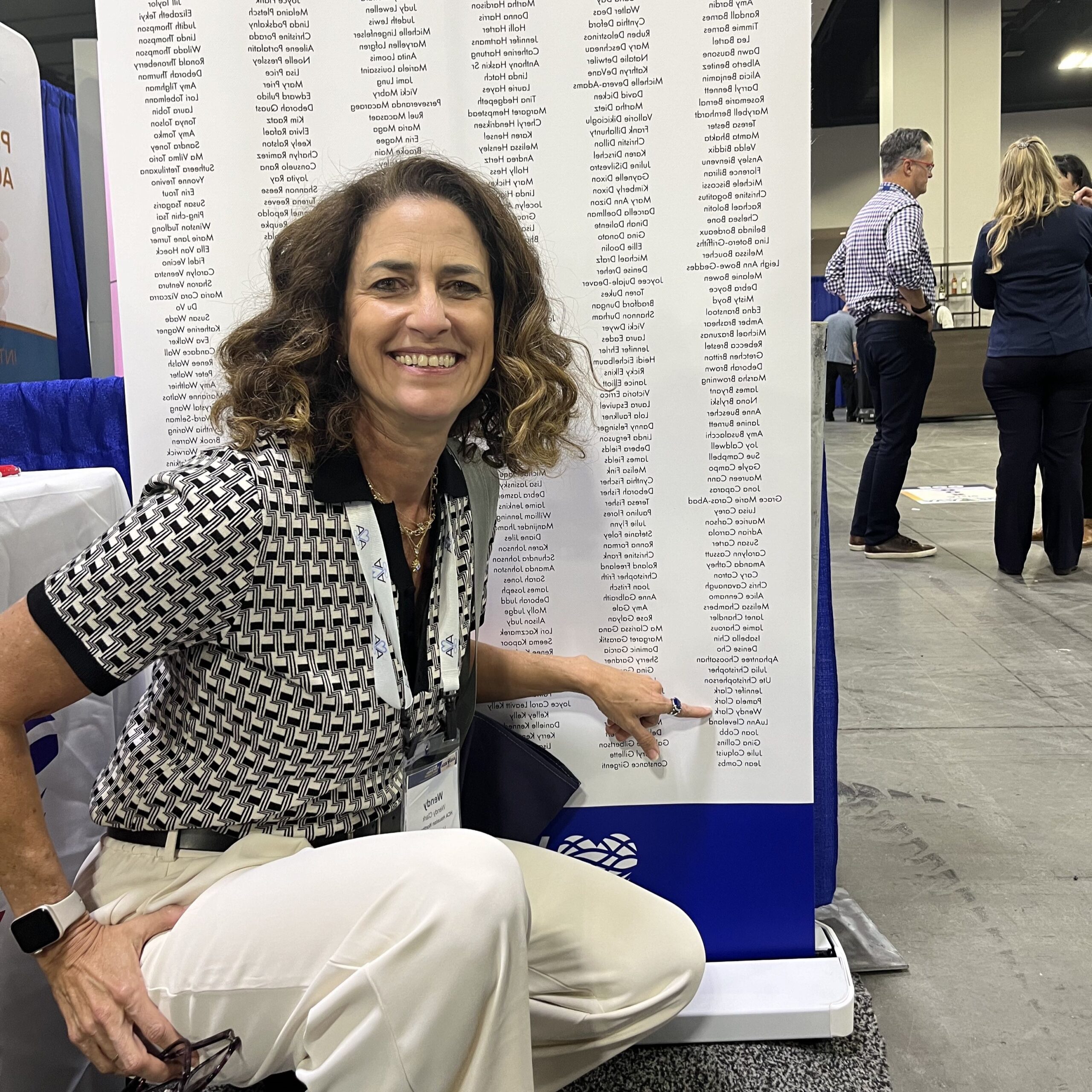
Respiratory care faces a shortage of therapists. Could preparing respiratory care students for additional certifications help them succeed in the field?
Tracey Schartz, M.ED., RRT, VA-BC™, presented her research on the value of specialty credentials at the American Association for Respiratory Care (AARC) 2024 Congress. She shared the outcomes of her poster with our team.
What does this research mean to you?
Tracey Schartz: As a healthcare program director in an academic institution, I can confidently tell my students that they should strive to achieve specific knowledge in those areas that they feel the most passionate about. That additional expertise will provide them with the direction they need in treating their patients by utilizing best practices and improving patient outcomes.
“Ninety-two percent of those schools acknowledged that there is benefit for the students to obtain these additional credentials with regard to increase in monetary compensation from employers, quantifiable knowledge, and producing more marketable candidates for employment.”
What prompted this research?
TS: The field of respiratory care is currently facing a shortage of practicing therapists. This is due to both low enrollment in our respiratory programs and a result of therapists stepping out of the field. Therefore, our healthcare facilities are in dire need of well-trained respiratory therapists who are able to treat high acuity patients.
The research completed was done to determine if our academic programs were either in support of or preparing their students in obtaining specialty credentialing to help prepare them for this high level of care.
How long did the process take to complete, from the beginnings of the project to analyzing the final research?
TS: Research for this project began in December 2023 when I began reaching out to respiratory program directors across the country. I contacted a total of 175 Program Directors of accredited respiratory programs to survey whether they offered specialty credential training or encouraged their students to obtain them.

Of the 3 schools that indicated that they offered review courses for specialty credentials, are these courses part of the curriculum?
TS: There were three programs offering specialty credentialing review courses for NPS, PFT, ACCS, A-EC and/or VA-BC. However, those courses were only made available to alumni or those students who already hold a respiratory license as that is a requirement to sit for many of those exams.
Were there any findings that surprised you?
I was actually surprised to see the statements from a few program directors that holding any of those credentials served no benefit. The vast majority felt that having additional credentials resulted in an increase in quantifiable knowledge of that subject matter and made the candidate more beneficial to any healthcare organization.



